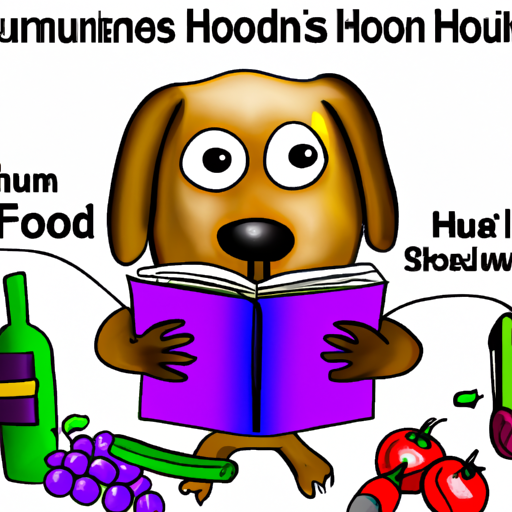“`markdown
What Foods Should Dogs Not Eat
As a caregiver, it’s your responsibility to ensure the health and safety of your beloved pet. You may often wonder what foods are safe for your dog. This article will provide you with a comprehensive guide of harmful foods for dogs.
1. Chocolate and Caffeine
On the surface, a piece of chocolate or a sip of coffee might seem harmless. But for dogs, these foods can be deadly.
-
Chocolate contains theobromine, a stimulant that dogs can’t metabolize effectively. It can cause vomiting, diarrhea, irregular heartbeat, tremors, seizures, and even death.
-
Caffeine in coffee, tea, or energy drinks can also be toxic to dogs. Symptoms can include restlessness, rapid breathing, heart palpitations, muscle tremors, and seizures.
| Food | Toxic Compound | Symptoms |
|---|---|---|
| Chocolate | Theobromine | Vomiting, diarrhea, irregular heartbeat, tremors, seizures |
| Caffeine | Caffeine | Restlessness, rapid breathing, heart palpitations, muscle tremors, seizures |
2. Grapes and Raisins
Grapes and raisins are extremely toxic to dogs, even in small amounts. They can cause sudden kidney failure, which could be fatal. The exact toxic compound in these fruits remains unknown, making them all the more dangerous.
3. Onions and Garlic
Garlic, onions, leeks, and chives belong to the Allium family and are poisonous to dogs. They can cause damage to the red blood cells, leading to anemia. Symptoms may include weakness, vomiting, and breathing problems.
4. Alcohol
You might think it’s funny to let your dog have a lick of your beer, but alcohol is seriously harmful to dogs. It affects the central nervous system, causing symptoms like poor coordination, difficulty breathing, tremors, abnormal blood acidity, and even death.
5. Xylitol
Xylitol is a sweetener used in many products, including gum, candy, baked goods, and toothpaste. It can cause insulin release in dogs, leading to liver failure. The increase in insulin leads to hypoglycemia (lowered sugar levels).
FAQs
Q: Should I induce vomiting if my dog eats something toxic?
A: Not always. In some cases, inducing vomiting can cause more harm. Contact your vet immediately for advice.
Q: How do I prevent my dog from eating dangerous foods?
A: Keep harmful foods out of your dog’s reach. Train them to “leave it” when they approach dangerous items.
Q: What should I do if my dog eats something harmful?
A: Contact your vet or an emergency animal hospital immediately. Indicate what your dog consumed, how much, and any symptoms they are showing.
Remember, when it comes to your dog’s health, prevention is always better than cure. Keep these harmful foods away from your furry friends to ensure their safety and longevity.
“`



